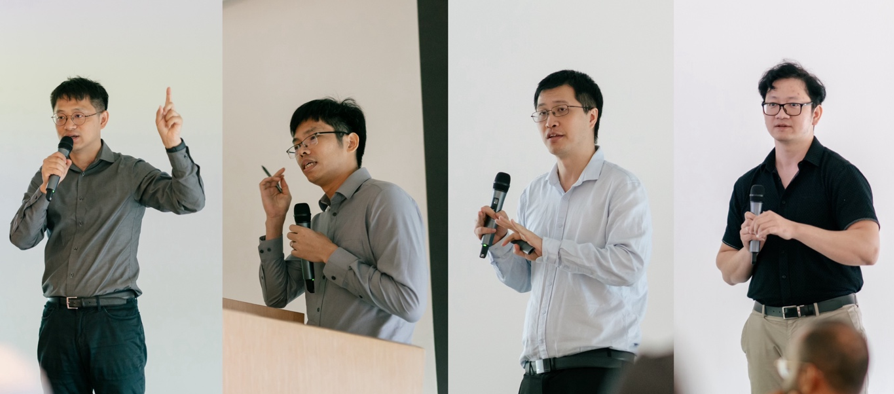Prof. Bryan Adey and Assistant Professor Prateek Bansal moderate the AI for Smart Mobility Symposium at the URA Centre
On 3 July 2024, the Future Cities Laboratory Global (FCL) hosted the AI for Smart Mobility symposium at the Urban Redevelopment Authority (URA) centre in Singapore. The symposium was moderated by Prof. Bryan T. Adey (ETH Zürich) and Assistant Professor Prateek Bansal (Singapore-ETH Centre).

The event marked the launch of AMIL’s AI-enhanced research initiatives and fostered exploration and engagement with Singapore's local AI-transport ecosystem.
The symposium attracted around 50 participants, including representatives from local stakeholders. The event was moderated by Singapore-PI of AMIL external page Assistant Professor Prateek Bansal (Singapore-ETH Centre) alongside ETH Zurich-PI of AMIL Prof. Dr. Bryan T. Adey (ETH Zurich).
Four distinguished speakers presented their cutting-edge research on the application of AI methods to address urban transport challenges and promote smart mobility:
- external page Associate Professor Hai Wang from SMU delivered a presentation titled ‘Synergizing Learning for the Optimization of Transportation and Logistics Systems’. He discussed the latest advancements in AI approaches to enhance the performance of maritime logistics and food delivery systems.
- external page Assistant Professor Feng Zhu from NTU presented on ‘The Application of Transfer Learning in Traffic Flow Modeling’. This talk introduced transfer models developed for advanced traffic management, aimed at alleviating urban traffic congestion.
- external page Assistant Professor Kaidi Yang from NUS discussed ‘Trustworthy Decision-Making for Connected and Automated Transportation Systems’. He explained their research on applying reinforcement learning for autonomous vehicle motion control and fleet management to enhance the safety and efficiency of transport.
- external page Assistant Professor Mai Anh Tien from SMU presented ‘Reinforcement Learning for Route Choice Predictions’. His talk demonstrated the use of inverse reinforcement learning methods for dynamic route choices.
These presentations showcased how human-augmented AI techniques can improve trust between human users and machines while achieving more sustainable, efficient, and safe urban mobility. The audience actively engaged with the speakers during the separate Q&A sessions and the networking segment, fostering a productive exchange of ideas and insights in AI for smart mobility.
The Infrastructure Management Group mission is to improve the construction and management of infrastructure. For more information visit our webpage